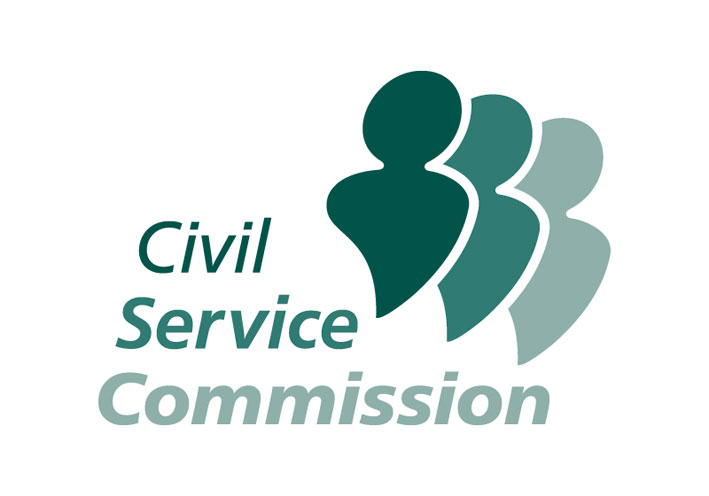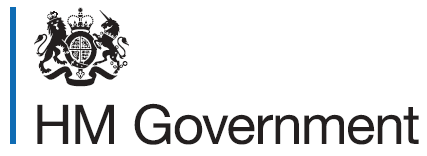Commissioners’ Mark of Excellence 2023 Winner announced
The Civil Service Commission works to ensure that recruitment into the Civil Service is based on merit, and made in a fair and open manner. Over the past year, the Commissioners’ Mark of Excellence has focused on rewarding innovative recruitment efforts by Government departments and organisations to bring in, induct and retain outstanding external candidates for public sector positions. This is in line with wider efforts to make all senior vacancies in the Civil Service advertised externally, known as 'external by default' policies, and broaden the skills and experiences available within the Civil Service.
The overall winner - Ministry of Justice
The judging panel were impressed by the Ministry of Justice’s commitment and consistency in externally advertising all roles, as well as the range of initiatives in place to support candidates who are new to the Civil Service and schemes to encourage greater interchange for existing staff.
Five further entries were ‘highly commended by the judging panel this year:
- Government Legal Department – for their ‘Leeds prototype’ campaign, recruiting and supporting specialist external legal experts from outside of London.
- Intellectual Property Office – for removing barriers for external candidates and targeted outreach work to attract Science, Technology and Maths candidates to Civil Service roles.
- The Scottish Government – for their strategic approach, facilitating faster and more open recruitment and their strong support for secondments and skills transfer.
- Office for National Statistics – for their use of new platforms for open advertising of civil service roles, providing high quality, tailored information to new pools of candidates.
- Home Office – for their ‘Senior Leaders’ initiative providing information on equivalence with private sector management positions and partnership recruitment work for the Stoke government hub.
The 2023 judging panel included Baroness Gisela Stuart, First Civil Service Commissioner, Atul Devani, Entrepreneur and Civil Service Commissioner, and Fiona Ryland, the Civil Service Chief People Officer. 19 departments and agencies submitted entries for the Commissioners’ ‘Mark of Excellence’.
Winning organisations are able to display the Mark of Excellence logo on all their recruitment advertisements for one year and will be taking part in an online event to share their approaches with recruitment teams across the Civil Service in the Spring.
Here are some of the case studies and examples of their work:
Ministry of Justice - Winner 2023
- Amongst the Ministry of Justice’s (MoJ) ongoing work to attract external talent, they launched an Initiative to improve recruitment of Armed Forces veterans to provide opportunities for veteran candidates to fill critical frontline roles in the prison and probation services in those locations most in need.
- MoJ also set targets to increase the recruitment of prison leavers in the Civil Service, bringing valuable lived experience and insight to the delivery of the justice system and significantly contributing towards the cross government targets for the recruitment of prison leavers.
- They are improving the geographical diversity in the workforce at all levels by expanding capacity in their current estate to recruit into 37 locations across the country, including locations in Scotland, Wales and many regions in England.
- They improved engagement and outreach with college and school leavers in areas with greater social mobility challenges; and set up a dedicated development scheme to attract a location specific talent cohort in the North of England.
- They showed commitment to upskill current staff - giving current staff access to a wider selection of development options for existing staff, ranging from project leadership skills to dedicated commercial, digital, HR, communications, analytical and finance apprenticeships.
- And finally they improved transparency around Civil Service recruitment to bring in more external expertise. This included hosting a large-scale careers showcase; designing and delivering a national advertising campaign; developing bespoke tools to support vacancy managers to engage local communities; introducing processes and guidance to ensure mandatory external advertising of senior roles; and rolling out candidate webinars across functions and business areas to engage and inform candidates on what to expect from Civil Service interviews and application processes.
Highly Commended Entries
The Government Legal Department’s ‘Leeds Prototype’ Campaign case study: engaging external applicants for a regional office
- The Government Legal Department (GLD) are working to build a critical mass in their national offices outside of London, meeting their Places for Growth aspirations, with a focus on Leeds.
- For this initiative, they used a specialist supplier to headhunt and engage candidates. The supplier proactively approached passive candidates with specialist legal skills outside of London. They ensured the supplier was educated on the Commission’s principles, regarding complying with fair and open competition, so that headhunted candidates and those who applied were treated in the same way and applications treated fairly.
- They worked to ensure that all candidates (external and internal) were personally briefed and given the opportunity to speak to someone within our Leeds legal team, a tool usually reserved for Senior Civil Service Recruitment. These informal chats prior to sift helped to engage and retain candidates. Candidates were also provided with reference weblinks, specifically linked to the field, for further research such as, “The Judge Over Your Shoulder” guidance document alongside Government Legal Department’s Business Plan and Annual Reports.
- This was all done in conjunction with senior stakeholders in Leeds and the specialist supplier built a microsite to aid attraction, whilst remaining compliant – e.g. salaries clearly stated and start and end dates for campaign adhered to.
- As a result, GLD appointed 18 Grade 6 specialist lawyers, 17 of whom were external, across four of our specialisms over 5 months, dramatically reducing their time to hire and gaining excellent feedback from candidates and stakeholders alike.
Intellectual Property Office case study
- The Intellectual Property Office (IPO) have a strong secondments and loans policy in place and offer support to IPO staff going to other organisations to develop their skills and experience. Roles cannot always be kept open if secondments or loans last over a year, so IPO try and accommodate them in the directorate they leave on their return, otherwise they will be found a role within the wider IPO. Having recently sent staff overseas to European Patent Office, IPO are excited to have three more joining them in the New Year.
- IPO have also launched external pages to help guide external candidates with their applications to make the process easier. They launched a Civil Service Careers site inclusive of a 'Recruitment Support' page covering structuring and submitting a CV, writing a personal statement, understanding ‘Success Profiles’, inclusive recruitment initiatives, Vetting and Security Clearance.
- Bespoke webinars are also run for large scale or niche roles to provide applicants with scheme specific information, as well as detailing the benefits of joining the IPO, the company culture, and the opportunity to dive deeper into questions. These webinars set applicants up for success by presenting information in innovative ways.
- IPO have a number of Outreach programmes including;
- Code First Girls (a collaborative scheme with a not-for-profit social enterprise that trains women and non-binary individuals in IT skills)
- Returning to STEM (an opportunity for STEM professionals looking for a chance to return to work following a career break)
- Graduate Opportunities in Digital, Data and Technology (2-year placement developing graduates’ technical and personal skills via an in-house training programme)
- Patent Degree Apprenticeships (5-year programme offering a route into a technical based role with a fully funded degree qualification and work experience with the interest of ‘growing our own’.)
Scottish Government case study
- This year the Scottish Government has taken extra steps to promote a career in the Civil Service to external candidates.
- They have demonstrated how they support candidates through interviews, showing success with a recent Graduate Development Programme campaign and a more transparent assessment approach.
- Using a dedicated website, online candidate packs and interactive webinars they have been able to bring in a number of high calibre graduates into the Scottish Government. As a result of their new attraction strategy and assessment process, they have also been able to make a significant increase in offers to disabled candidates in comparison to the last Graduate Programme. This has led to extending the same level of detail, candidate-centric information, and transparency to all future vacancies and schemes.
- In the last year, they introduced a dedicated ‘Attraction’ team to provide a streamlined and professional approach to Scottish Government campaign strategies. To ensure broad outreach, the team make use of UK-wide channels to advertise and attract candidates for various roles.
- At a more local level, there is regular engagement with staff networks and Local Authority Employability Services who can offer support and information to candidates with their applications.
Home Office case study
- The Home Office demonstrated how they are committed to building a stronger and more inclusive workforce, encouraging applications from candidates across the UK. Their advertising strategy, alongside focus on their brand and website to improve the user’s experience and attract talent, has been key.
- Home Office has developed targeted advertising approaches, tailored to specific roles and locations. As well as advertising on Indeed, LinkedIn and Spotify, potential candidates encounter adverts and the Home Office brand on their local bus, on local radio or on local posters and billboards.
- Coupled with this was the launch of the new Home Office Careers Website providing comprehensive information on the types of roles and careers available in the Home Office and clarity on our application processes. Feedback from users has been really positive.
- To help candidates understand the application/assessment stages, they have a range of channels which has led to greater engagement and role-specific support through chatbots, Live Chat, email and telephone as well as online events for significant campaigns
- A positive outcome is that candidates navigate selection processes with greater success, making vacancies easier to fill. The strategy has proved successful, generating a rise in applications and a rise in the proportion of candidates who are new to the Civil Service.

